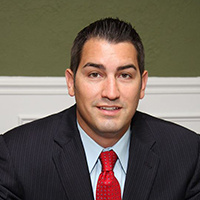Tamaqua Bankruptcy Lawyer, Pennsylvania
Includes: Bankruptcy Litigation, Commercial Bankruptcy, Consumer Bankruptcy, Dissolution
Jason Michael Rapa
✓ VERIFIEDCriminal, Credit & Debt, Personal Injury, Bankruptcy, Car Accident
Jason M. Rapa, Esquire, is a lawyer licensed and admitted to practice law in the State of Pennsylvania and before all three Pennsylvania Federal Court... (more)
FREE CONSULTATION
CONTACTJohn DiBernardino
Employment, Consumer Protection, Bankruptcy, Car Accident
Status: In Good Standing Licensed: 38 Years
Maryann Conway
Litigation, Federal Appellate Practice, Family Law, Bankruptcy
Status: In Good Standing
James R. Kilker
Real Estate, Domestic Violence & Neglect, Disability, Bankruptcy, Medical Malpractice
Status: In Good Standing Licensed: 51 Years


